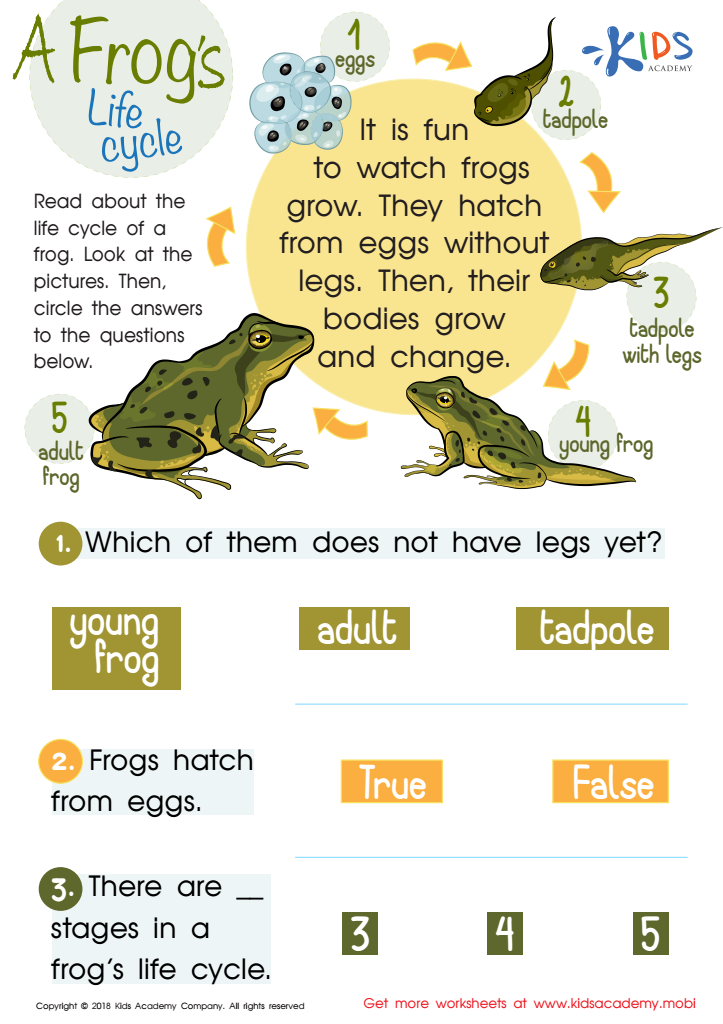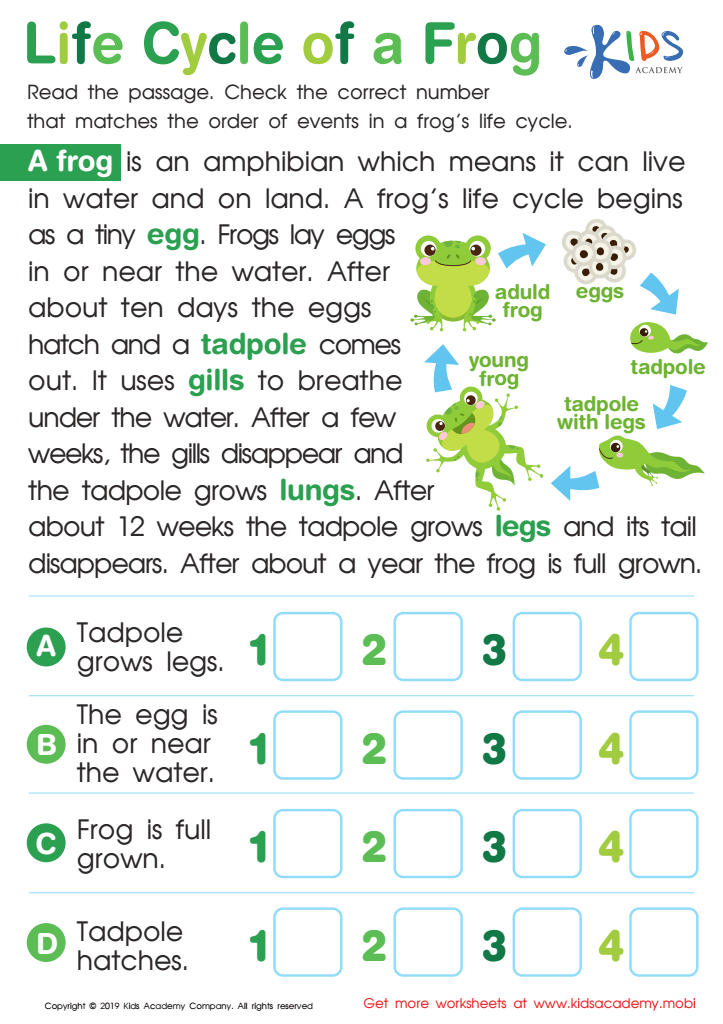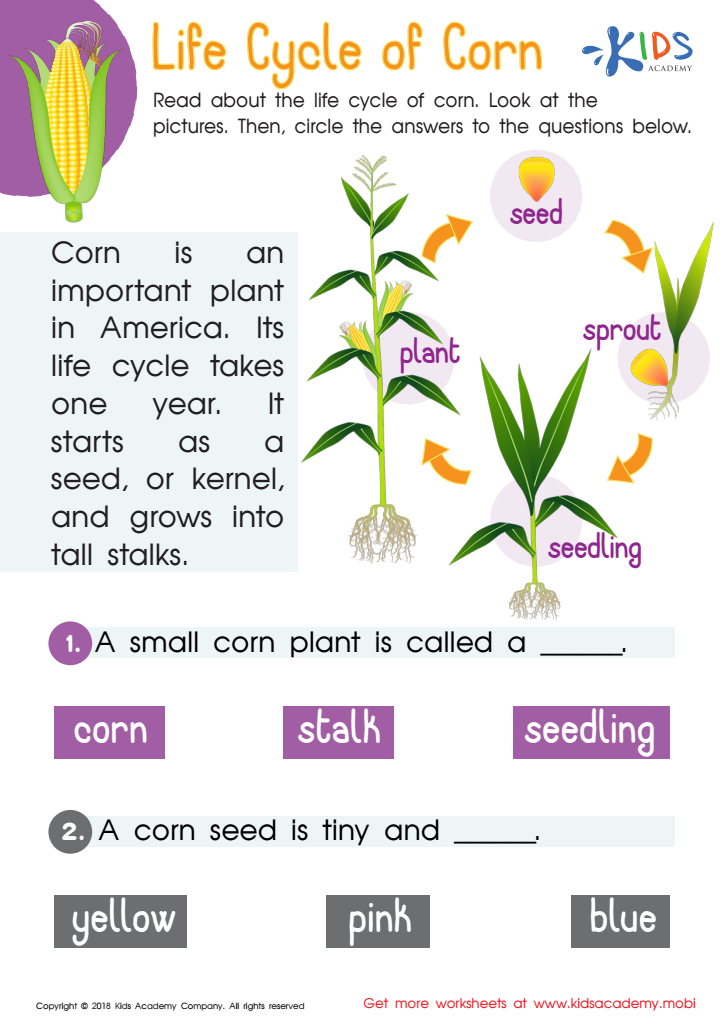Understanding life cycles Reading Worksheets for Ages 3-8
3 filtered results
-
From - To
Discover the fascinating world of life cycles with our engaging reading worksheets designed for children ages 3-8! These specially crafted resources help young learners grasp essential concepts of growth and change through fun, interactive activities. Each worksheet focuses on various life forms, guiding kids through the stages of life in an entertaining and educational way. With colorful illustrations and easy-to-follow instructions, your child will enhance their reading and comprehension skills while exploring nature. Perfect for home or classroom use, our life cycle worksheets encourage curiosity and foster a love for learning. Start your child's journey into nature's wonders today!


A Frog’s Life Cycle Worksheet


Life Cycle of a Frog Worksheet


Life Cycle of Corn Worksheet
Understanding life cycles is essential for children aged 3-8 as it fosters a deep appreciation for nature and promotes curiosity about the world. When parents or teachers engage young learners with life cycle concepts, they help them grasp fundamental biological principles through relatable examples, such as the transformation of a caterpillar into a butterfly or the growth of a flower from seed to bloom.
Reading about life cycles encourages vocabulary expansion and literacy skills, as children encounter new terms associated with these natural processes. This knowledge not only enriches their comprehension but also nurtures critical thinking skills, enabling them to ask questions, make predictions, and draw conclusions based on their readings.
Additionally, understanding life cycles can support social-emotional development. Children learn lessons of growth, change, and resilience through stories of various life cycles, which reflects their own developmental journeys.
Furthermore, exploring these topics can foster environmental awareness and responsibility in young learners, instilling values of respect for nature and promoting sustainability. Overall, introducing life cycles through reading empowers children to connect with their environment, enhances their educational experience, and prepares them to be informed and conscientious individuals as they navigate the world around them.

 Assign to My Students
Assign to My Students

















